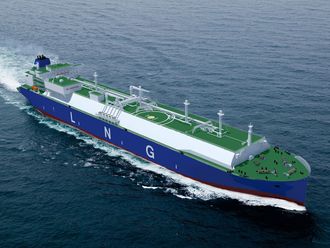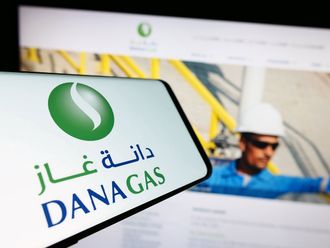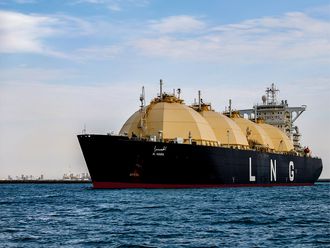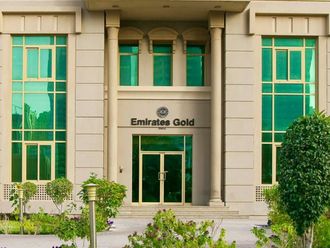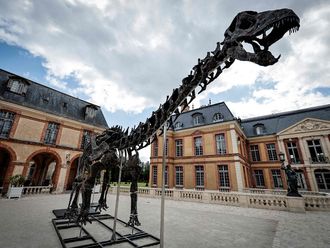Beijing: Royal Dutch Shell plans to spend at least $1 billion (Dh3.67 billion) a year exploiting China’s potentially vast resources of shale gas, the firm’s top China executive said, part of an aggressive strategy to expand in the world’s biggest energy market.
Shell in March secured China’s first product sharing contract for shale gas, hoping that getting in early will allow it to be a big beneficiary from the sort of boom in shale that has transformed the US energy market.
Asked if the firm remained committed to a plan to invest $1 billion a year in China’s shale gas over the coming few years, Lim Haw Kuang, Shell’s top China executive, said in an interview: “Yes, yes and yes.”
“If there has been an adjustment to that pledge, it could only be an upward revision,” added Lim, a Malaysian national and a Shell veteran of 34 years.
China is estimated to hold the world’s largest reserves of the unconventional gas -- which can be unlocked from ancient shale rocks by “hydraulic fracturing”, a technology well developed in recent years in North America.
Shell is also aiming to build a $12.6 billion refinery and petrochemical complex in eastern China, a project that could become the single largest foreign investment in China.
The Anglo-Dutch firm is one of the biggest investors in China’s energy sector but faces strong competition.
Exxon Mobil, BP, Total and Chevron Corp are also trying to get a bigger slice of the Chinese market, where use of natural gas is set to triple this decade and growth in oil demand makes up more than a third of the world total.
Shell has lined up China National Petroleum Corp, the country’s top energy group and parent of PetroChina, as its partner for both shale gas and the Taizhou refinery project.
“It’s an alliance between strong firms. That should help control the cost,” said Lim, referring to its shale gas venture with CNPC in Sichuan province, where Shell drilled 11 wells last year, more than any other international firm.
Shell hopes to leverage its operational and technology expertise gained developing shale gas in North America, while CNPC holds the country’s premium oil and gas acreage.
CNPC, through PetroChina, produces some 60 per cent of China’s crude oil and nearly three-quarters of its natural gas.
Shell is a major supplier of liquefied natural gas (LNG) to China, securing gas from its global fields including in Australia and Qatar. LNG is super chilled gas for shipping in tankers.
The company also plans to relocate its global business unit for coal bed methane to China later this year, and establish a global research hub for unconventional gas and oil -- its first outside Houston.
China expects CBM, gas trapped in coal seams, to meet 15 per cent of the country’s needs by 2020.
Lim, 58, who has been Shell China executive chairman since 2005, said successfully investing in China required finding a long-term strategic partner.
“We need to find a partner who will not only cooperate with us well for one day or two, but also share the same development vision and direction over the next few decades,” he said.
Shell has lined up alliances with Chinese oil firms outside China, covering coal-seam gas in Australia, LNG in Canada, gas exploration in Qatar and drilling offshore West Africa.
Shell has taken a different approach in China’s fuel retailing, by aligning with regional players independent of the big two local oil firms PetroChina and Sinopec Corp.
The company may face a bigger test investing in China’s refining sector where there are question marks over profitability due to rigid state controls, while environmental issues have also become more important.
Environmental concerns forced the relocation a few years ago of a Kuwaiti-invested plant, while recent protests in China over pollution have turned violent and forced authorities to cancel projects.
Shell, which hopes to complete a feasibility study on its Taizhou project in the next few months, said it had been communicating about the project from early on with its partner CNPC, local government and residents in a bid to allay safety and environmental worries.


